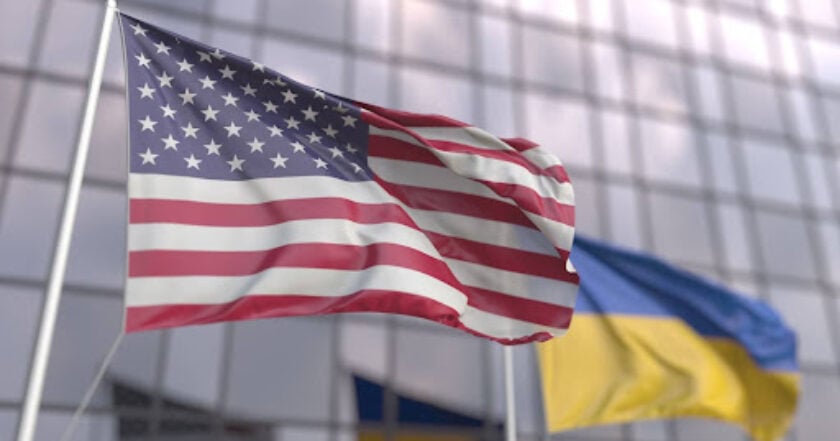New opportunities for Ukraine in the Trump administration: three key positions

This year, Ukrainians followed the course of the US presidential elections on November 5 with more attention than ever before. Can we say that the future of our Ukraine depended on the will of American citizens? Definitely, yes.
This is not surprising, as the change of power in the United States, as the leader of the democratic world, is inherently a global event. Furthermore, since 2014, and especially after the full-scale Russian invasion of Ukraine, the United States has been Ukraine's number one ally and the largest foreign donor. Ukraine's military capabilities have been directly tied to US military and financial aid, Washington's political decisions, and the supply of American weapons. It seems that almost every average Ukrainian is aware of this reality.
However, this time, the American presidential elections attracted special attention from Ukrainians due to the statements made by some members of one candidate's team. These remarks raised concerns and questioned the unwavering support of Ukraine by the US. Some of the promises included halting financial aid to Ukraine, pushing for the country to adopt a neutral status, rejecting NATO membership, and even recognizing Crimea as Russian. These positions were unsettling not only for people in Ukraine but also for Americans of Ukrainian descent, who were faced with a difficult choice.
Living in Florida, traditionally a Republican state, I have often found myself involved in both formal and informal discussions about the need to end American aid to Ukraine.
The choice that changed everything
On the morning of November 6, I woke up to an overwhelming number of messages from Ukraine. It soon became clear that Donald Trump had won in all key states, and the results of the 2024 presidential race had been decided.
You could sense the anxiety among Ukrainians. It wasn't just about personal political preferences regarding one candidate or another. Ukrainians, in the midst of a full-scale war, were focused on one key question: "Will the Americans leave Ukraine to fend for itself against the Russian threat?"
The American people made their sovereign choice, and Ukrainians, of course, will respect the will of American citizens.
There is no doubt that the next four years will bring significant changes for America, sometimes leading to unexpected decisions. Donald Trump is undoubtedly a decisive leader, and he will not hesitate to make major shifts in both domestic and foreign policy in the United States.
Undoubtedly, the approaches to resolving the war in Ukraine will also change. Whether these approaches will align with Kyiv's vision will depend less on direct contacts with Kyiv and more on the initial conversations with the Kremlin. The Ukrainian stance on resolving the war has been clearly communicated to Donald Trump—he is well aware of it. However, Putin's readiness, or rather his unwillingness, to make changes in the conflict could greatly disappoint the newly elected President Trump.
That said, I want to reassure many Ukrainians who fear such a change in US leadership. Donald Trump has already begun announcing candidates for key leadership positions in his administration. The individuals proposed for the three most important roles in US foreign policy bring positive prospects for Ukraine and create opportunities for productive cooperation. This could even prove to be more effective than it was under the previous administration in Washington.
Identifying key touchpoints between Ukraine and the Trump administration
As a former diplomat, I can say that when it comes to contacts with foreign countries in the U.S., three key positions are crucial: the National Security Adviser to the President, the Secretary of State, and the Secretary of Defense (head of the Pentagon). Donald Trump has announced Mike Waltz, Mark Rubio, and Pete Hegseth (in that order) as candidates for these positions. For Ukraine, all three appointments would be surprisingly positive, and here's why.
The candidate for National Security Adviser is Mike Waltz, a congressman from Florida, whose district is right next to my hometown of Jacksonville. The active Ukrainian community in northern Florida can confidently attest that both Waltz and his advisers have always been open to communication on the topic of Ukraine and the Russian war. In fact, his office has often sought more detailed information about the recent developments in Ukraine and funding to support decision-making. Waltz, a former Special Forces soldier with four Bronze Stars (two for bravery), and a veteran of the war in Afghanistan, has a deep understanding of military strategy and no illusions about Russia as a national security threat.
President-elect Trump has nominated another American veteran, Pete Hegseth, as a potential Secretary of Defense. This is perhaps one of the most unexpected picks in the new administration. Until recently, Hegseth was best known as a presenter and showman on Fox News, a fact that surprised many Americans. However, his background includes military service in Afghanistan and Iraq, degrees from Princeton and Harvard, and active advocacy for military personnel and veterans' rights.
Ukraine has a history of involving active military personnel, former prisoners of war, and veterans in diplomatic efforts in Washington. It seems likely that finding as many touchpoints as possible will become increasingly important.
There is significant hope that individuals like former combat veterans Mike Waltz and Pete Hegseth, after trips to Ukraine's war zones and sites of Russian war crimes, detailed military briefings, and direct conversations with Ukrainian troops, could become strong advocates for increased US aid to Ukraine, even in civilian roles within the Trump administration.
It appears that American diplomacy will soon be led by someone well-versed in Ukrainian affairs. Senator Marco Rubio of Florida, an active member of the Senate Committee on International Relations, is recognized among Ukrainians in the US, particularly in Washington and Florida, for his work on key Ukraine-related legislation since 2014. Rubio has visited Ukraine multiple times, and Ukrainian diplomats in Washington have an established rapport with him.
While some may recall Rubio's and Congressman Mike Waltz's ambiguous votes and statements in Congress over the past year regarding the war in Ukraine, these are likely tied to career strategy during an active election campaign aimed at aligning with Donald Trump's political base, rather than their personal positions.
Currently, Rubio, Waltz, and even Pete Hegseth seem to align more with "classic Republicans" than "classic Trumpists," judging by their professional records and policy stances. The inclusion of a hawkish Republican wing in the new administration could present significant opportunities for Ukraine to strengthen cooperation with an unpredictable White House and a reconfigured Congress.



















































